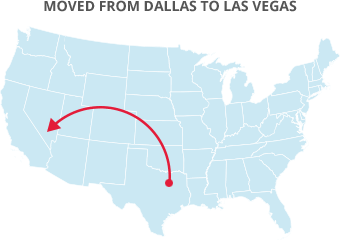

By Julie DeLong, A-1 Freeman Moving Group
 Moving across the country? Join
the club--last year over three million Americans crossed a state line to a new home. Some of those moves were across the country and others could
have been across town, but every single
one of those families had to uproot everything
they owned, put it onto a moving truck, and hope that it arrived without issue. If you're planning a move, there is no question
you have been researching
moving companies and have gone down the path of horrible
move stories on review sites. How do you manage your residential move so
that you're not a victim of moving fraud,
and that your things arrive at your new house
in Tulsa and Oklahoma City safe and intact?
Moving across the country? Join
the club--last year over three million Americans crossed a state line to a new home. Some of those moves were across the country and others could
have been across town, but every single
one of those families had to uproot everything
they owned, put it onto a moving truck, and hope that it arrived without issue. If you're planning a move, there is no question
you have been researching
moving companies and have gone down the path of horrible
move stories on review sites. How do you manage your residential move so
that you're not a victim of moving fraud,
and that your things arrive at your new house
in Tulsa and Oklahoma City safe and intact?The first thing to do is to learn the jargon of the trucking industry. It is a ton easier to make good decisions if you understand the vocabulary of the business and the various business models of moving companies. This glossary of terms, found on the Federal Motor Carrier Safety Administration website, aids you to familiarize yourself with Mover-speak so that when you hear words like auxiliary service, tariff and bulky item, you will comprehend what they refer to.
The FMCSA website is a great commencing point in general, as it also spells out the guidelines, if you will, that licensed carriers abide by. Any moving company you are thinking about needs to be registered with the US Department of Transportation, and have a Motor Carrier and DOT number. You can search any issues lodged against a company on that site. The ones on Yelp and Facebook are more amusing, but any issues filed with the DOT usually have a higher level of validity than complaints that are most likely the result of the customer just not paying attention.
In an ideal world, you'd find movers a few months beforehand, and unhurriedly pack, supervise the family, and be completely ready when the movers show up. Real life isn't so tidy, and that's what moving scammers bank on when they are promising you the moon—you are busy and thinking about a million things, so they appeal to your sense of urgency—here is a ballpark estimate and a handshake and we'll talk about the specifics later. This is a definite way to never see your furniture again, unless you want to buy it back on Craigslist.
Rather, ask your realtor for a suggestion of a moving company. Or, if you know anyone who has moved in the recent past, ask them who they used. National moving companies usually have agents all over the country, so you can ask your friend in Iowa who they used, even if you live in Vermont. Use the FMCSA website to find moving companies registered for interstate moves, and Google them. Once you've pared down the list to a few choices, obtain written in-home estimates.
Make sure to review the FMCSA publication, "Your Rights and Responsibilities When You Move". When hiring a professional mover, it's a federal law that you're provided this 25-page brochure (or a link to it) that outlines your rights, protection, and industry regulations.
It is vital that you spot an untrustworthy mover BEFORE they load your household goods. Keep in mind, not every mover has your best interest in mind. So, keep these RED FLAGS handy as you are interviewing your potential mover.
Be wary of movers who:
It's better to be safe than sorry. So, be sure and verify your moving company before they load your things onto their truck! Remember that if it seems too good to be true it probably is, and since you are trusting the movers with what is effectively your life, do your investigation and hire a reputable moving company, like A-1 Freeman Moving Group, who will take good care of you when you move to Tulsa and Oklahoma City.

